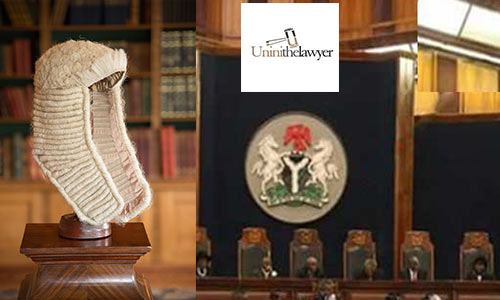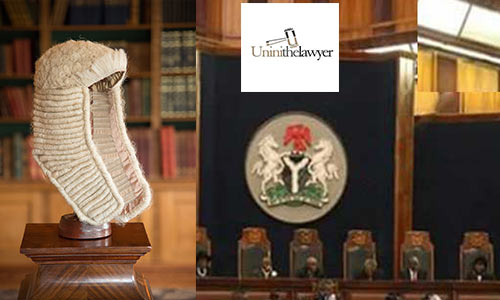The Code of Conduct Tribunal on Monday adjourned the trial of Justice Walter Onnoghen, the suspended Chief Justice of Nigeria until February 13, at the instance of the defendant’s team.
Mr. Adegboyega Awomolo (SAN) Counsel to Onnoghen, had urged the tribunal to adjourn proceedings to allow the National Judicial Council (NJC) to rule in a similar petition against the defendant.
Awomolo had informed the three-man panel of the tribunal, led by its Chairman Umar Danladi, that his client was being served seven days to respond to the petition, which was similar to the charges before the tribunal.
He said it was in the interest of justice for the tribunal to adjourn so that the defendant would have the space to defend himself before the two institutions effectively.
“We are urging this tribunal to temporarily halt its proceedings to allow our client the time to respond to a similar petition on charges pending before the NJC.
“This is to avoid a situation of double jeopardy for the defendant, just as it is noble for the panel to grant us the adjournment in the interest of justice,’’ he said.
Counsel to the Federal Government, Malam Aliyu Umar (SAN) did not raise objection, but described the reason adduced by Awomolo as unknown to law.
Aliyu said the NJC was not a court that had jurisdictional powers over the tribunal.
Umar said the defence counsel should have based his reason on the Administration of Criminal Justice Act (ACJA) that entitled parties to five adjournments in the course of a trial.
The chairman of the tribunal, who viewed the reason for the adjournment as a usurpation of powers, insisted on proceeding with the case, a situation which ignited a slight uproar between him and Awomolo.
Awomolo had argued that when counsel to parties had agreed on an adjournment, the tribunal had little or nothing to do other than to grant it.
On his part, Danladi said the tribunal had sent out the notice of sitting to entertain the two applications before it.
He further explained that the decision of the Court of Appeal not to stay proceedings on the trial showed that the panel had not done anything wrong.
The News Agency of Nigeria (NAN) reports that it took the intervention of the prosecutor (Umar) who requested for a 30-minute stand down of proceedings to douse the tension.
Upon the return of the members of the panel, apologies were tendered from both the bar and the bench, foreclosing what many of the visitors to the tribunal had described as an “ugly trend’’.
Danladi, thereafter, fixed Feb. 13, for a definite hearing of the matter.
He, however, warned that the tribunal could activate its powers to issue a bench warrant if the defendant failed to appear before it on the adjourned date.
According to him, the defendant must present himself to take his plea before any interlocutory motions can be heard.
NAN recalls that the defendant has a pending application challenging the jurisdiction of the tribunal to try him.
The tribunal had said it was also prepared to entertain an application filed by the government, urging it to order the stepping aside of the suspended Onnoghen as CJN.
NAN also recalls that the second leg of the government’s application had asked the tribunal to empower the president to take necessary steps to appoint an Acting CJN pending the determination of the case.
In a related development, the Court of Appeal had consolidated three appeals filed by Onnoghen challenging his trial at the CCT.
Justice Steven Adah gave the ruling for the consolidation of the appeals after counsel to parties had argued their stance.
The judge, therefore, fixed Feb.12, for the hearing of the consolidated motions.
NAN reports that consolidation occurs when the appeals of two or more parties are united for consideration because they contain identical or similar issues.
NAN recalls that Onnoghen had approached the appellate court to set aside an order of the CCT that led to his suspension.
He had also asked the court to make an order against the decision of the tribunal to hear all pending motions before it collectively.
Similarly, Onnoghen had urged the appellate court to order that the six-count charge against him was defective and to also hold that the tribunal lacked the jurisdiction to try him.
The suspended CJN is standing trial on allegations of non-assets declaration, a mandatory requirement of all public servants.



Leave a Reply